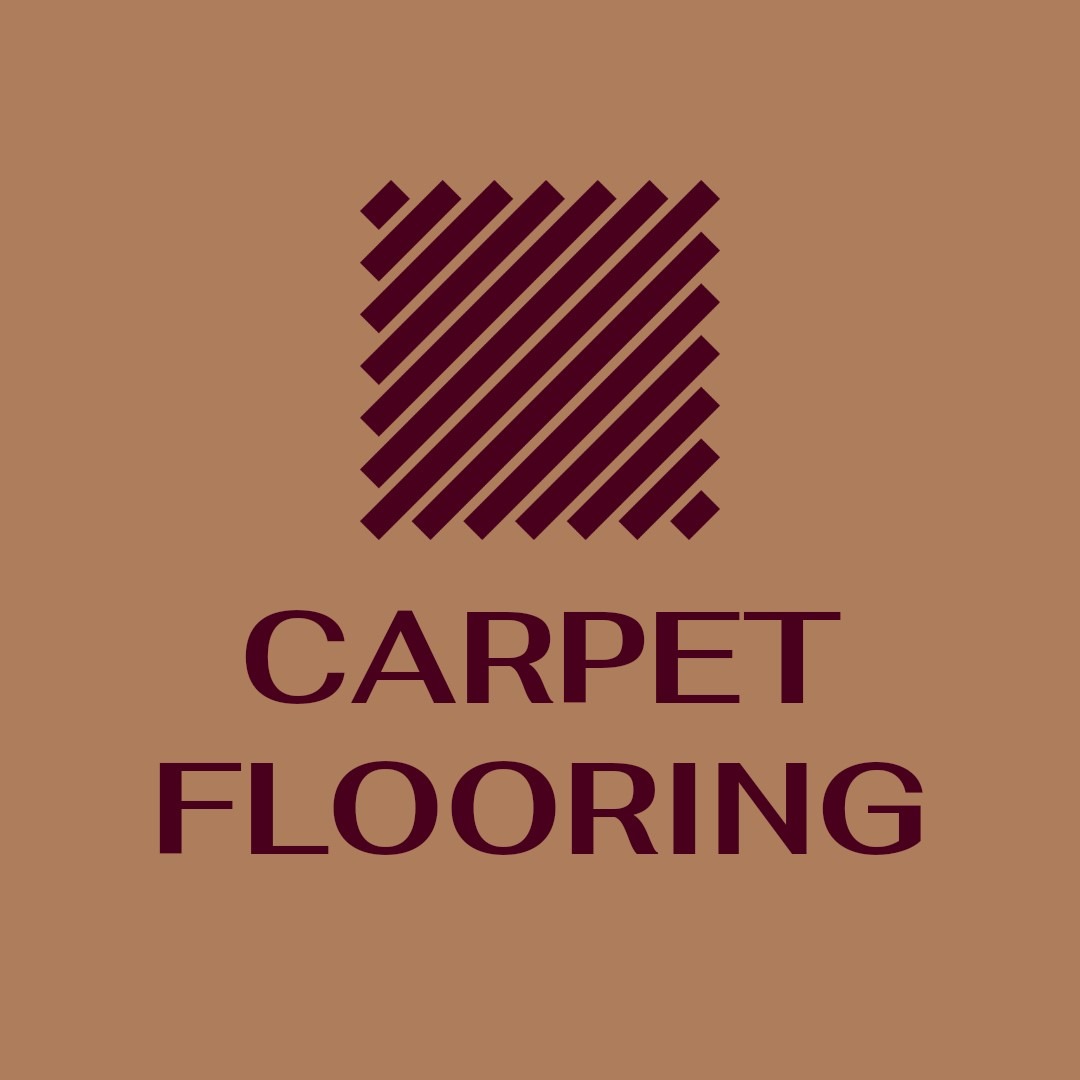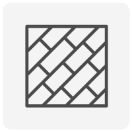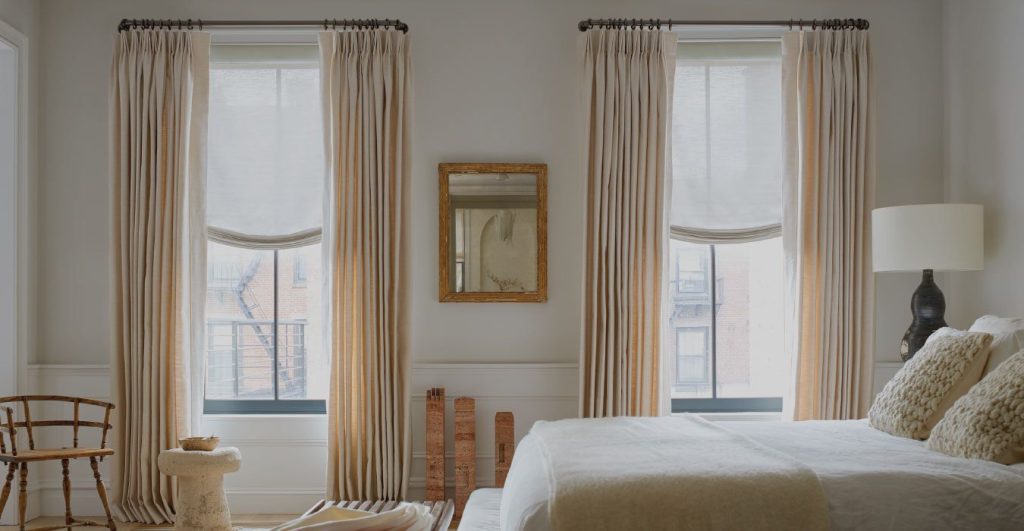When it comes to home decor in Dubai, curtains do more than add beauty to a room—they serve a vital purpose. With temperatures often soaring above 40°C and sunlight pouring in through expansive windows, choosing the right curtain fabric is as much a practical decision as it is an aesthetic one.
At Carpets Flooring Dubai, we’ve helped hundreds of homeowners and businesses navigate the challenge of selecting the best curtain materials for both style and functionality. In this article, I’ll walk you through my experience testing popular curtain fabrics—from airy sheers to heavy velvets—in Dubai’s unique climate. Whether you’re decorating a studio in Downtown Dubai or a villa in Emirates Hills, this guide will help you make informed choices for your window treatments.
Why Curtain Fabric Matters in Dubai
Curtains in Dubai homes are exposed to intense sunlight, fluctuating indoor temperatures (thanks to powerful AC systems), and occasional dust from the desert winds. All of these factors affect the longevity, performance, and appearance of your curtain fabric. In our tests, we focused on the following key criteria:
-
Heat insulation
-
Light filtration
-
Fade resistance
-
Maintenance and cleaning
-
Aesthetic appeal
Let’s dive into how various fabrics performed.
1. Sheer Curtains – Light and Breezy, But Limited Protection
Best for: Living rooms, layered looks, and decorative spaces.
Pros: Airy, elegant, allow natural light in.
Cons: Minimal sun/heat protection, limited privacy.
Sheers are beautiful—there’s no denying that. They create a soft, ethereal look and work wonderfully in layered curtain setups. In our test, we found sheer curtains ideal for rooms that don’t get direct sunlight or where natural light is desirable, such as living rooms or transitional spaces.
However, sheer fabrics offer very little insulation or UV protection. Within weeks of installation in sun-facing rooms, the fabric began to fade. Alone, they’re not suitable for bedrooms or areas where privacy or thermal insulation is needed.
Our Verdict: Use as a design layer or pair with heavier drapes.
2. Cotton Curtains – Comfortable and Versatile
Best for: Bedrooms and home offices.
Pros: Breathable, easy to clean, available in many styles.
Cons: Moderate fading in direct sunlight, may wrinkle easily.
Cotton is a middle-ground fabric: it’s breathable, natural, and suits Dubai’s climate fairly well if lined or blended. We tested medium-weight cotton curtains in a bedroom that gets moderate sunlight. Over two months, they held up well with minor fading.
Cotton curtains offer good airflow and are perfect for those who don’t want overly heavy window treatments. However, if you’re near the coast or facing strong sunlight, a UV-blocking lining is highly recommended.
Our Verdict: Ideal for moderate sun exposure areas with a lining.
3. Linen Curtains – Stylish but Demanding
Best for: Modern interiors, lounges, and reading nooks.
Pros: Elegant texture, breathable.
Cons: Prone to creasing, sensitive to humidity.
Linen curtains have a luxurious look and feel, especially in high-ceiling rooms. Their light texture brings a natural vibe, which complements Dubai’s love for neutral, minimalist interiors. But there’s a catch—linen wrinkles easily and is more difficult to maintain in humid indoor conditions (especially if you use humidifiers).
While they fared decently under direct sun (with minimal fading), we noticed they absorbed more dust compared to smoother fabrics, requiring regular vacuuming or dry cleaning.
Our Verdict: Go for linen if style matters and you don’t mind the upkeep.
4. Polyester and Blends – Budget-Friendly and Practical
Best for: Rental apartments, children’s rooms, and commercial spaces.
Pros: Affordable, fade-resistant, low maintenance.
Cons: Less breathable, synthetic look and feel.
Polyester curtains are a go-to choice for practicality. They’re affordable, easy to clean, and available in countless patterns and colors. We tested a polyester blend with blackout lining in a child’s bedroom, and it performed exceptionally well in terms of blocking heat and light.
That said, they lack the elegance of natural fabrics and may trap more heat if unlined. Some polyester curtains can also feel stiff or artificial, so texture selection is important.
Our Verdict: Smart option for rentals and budget-conscious buyers.
5. Velvet Curtains – Luxury with Insulation
Best for: Bedrooms, media rooms, and luxury interiors.
Pros: Excellent heat and sound insulation, luxurious appearance.
Cons: Heavy, expensive, and require professional cleaning.
Velvet is the showstopper of curtain fabrics. It not only blocks out light and insulates against heat but also dampens sound—a great perk for villas near busy roads. We installed deep blue velvet curtains in a master bedroom with floor-to-ceiling windows facing west. The difference in room temperature was noticeable within days.
However, velvet is heavy and must be installed with strong curtain rods. It’s also more high-maintenance and prone to attracting dust. In humid conditions or if exposed to moisture, it can wrinkle or lose shape.
Our Verdict: A premium option with excellent performance—ideal for privacy and insulation.
Final Thoughts
Testing curtain fabrics in Dubai’s climate taught us that no single material fits all needs. Your choice should balance aesthetics with functionality based on the room’s exposure to sunlight, heat, and use. A layered curtain solution—such as pairing sheer with velvet or cotton with blackout lining—often yields the best of both worlds.
At Carpets Flooring Dubai, we offer free consultations and fabric samples to help you test what works in your space. Whether you want elegance, practicality, or a mix of both, we’ll help you dress your windows to perfection.
FAQs
1. Which curtain fabric is best for blocking sunlight in Dubai?
Velvet and blackout-lined polyester are top choices for blocking sunlight. They provide excellent insulation and reduce glare and heat inside the room.
2. Are sheer curtains suitable for Dubai homes?
Sheer curtains are best used in combination with heavier drapes. Alone, they offer little protection from the intense Dubai sun and are more decorative than functional.
3. Do curtain fabrics fade quickly in Dubai’s climate?
Yes, fabrics exposed to direct sunlight—especially natural ones like cotton and linen—can fade over time. Choosing UV-resistant or lined curtains helps prevent this.
4. How often should I clean my curtains in Dubai?
Due to the dust and humidity, it’s ideal to clean your curtains every 3 to 6 months. Some fabrics, like velvet and linen, may require professional dry cleaning.

 Patchwork Rugs
Patchwork Rugs Hardwood Flooring
Hardwood Flooring Real Animal Skin Rugs
Real Animal Skin Rugs Curtains
Curtains Blinds
Blinds
